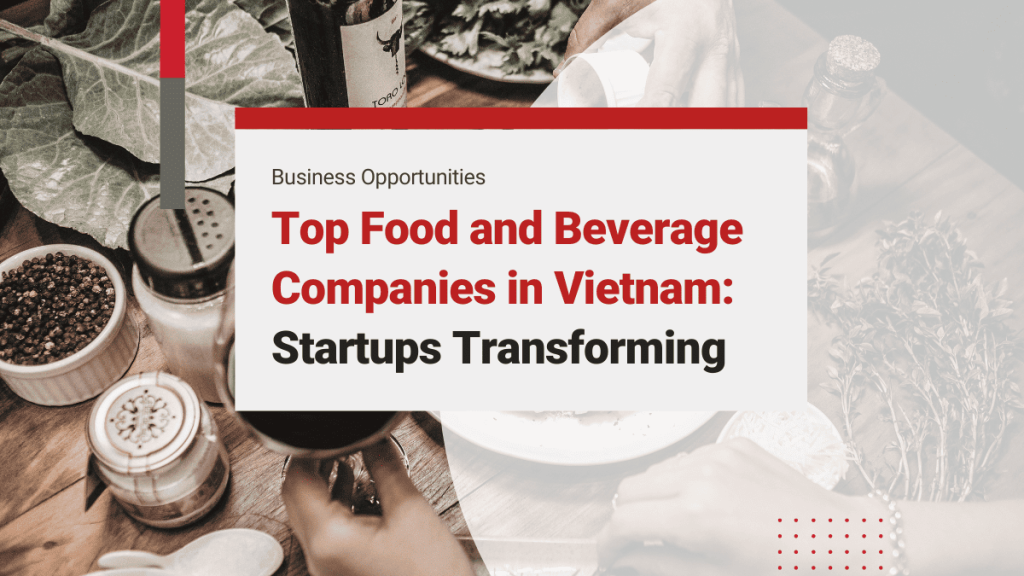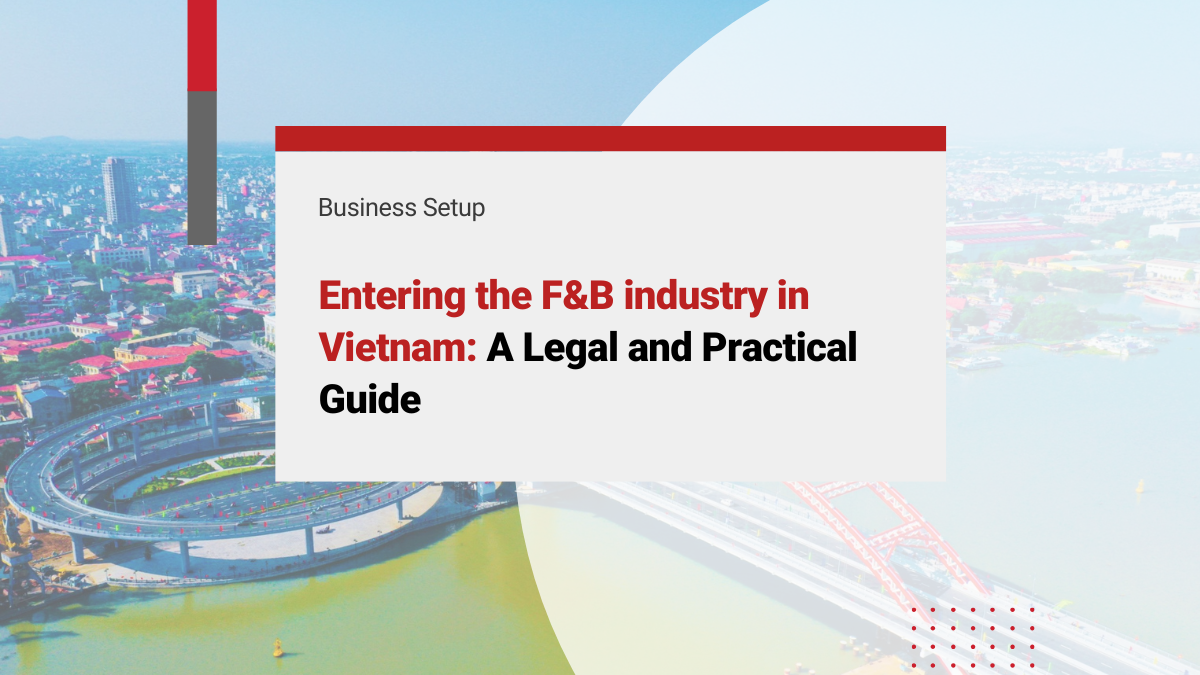Investing in food and beverage companies in Vietnam seems like a lucrative opportunity in 2024 as the market value of this sector is set to increase by 11% with US$26.1 billion (VND 655 trillion) in revenue capacity. This boom is due to increased spending, especially in the restaurant segment, which accounted for 68% of revenue in 2023 followed by 16.52% of revenue from the beverage segment.
The iPhos.vn Food and Beverage Market Report in Vietnam further highlighted how Vietnamese customers spent 5-10% more on dining out options, with 14.9% ready to spend VND 100,000 or more on daily dinners. This is more than three times higher than the spending tendency of Vietnamese consumers in 2022. This led to the dine-in market generating US$21.6 billion (VND 538.5 trillion) in revenue in 2023, nearly 11% higher than the 2022 figures.
In 2024, small and medium enterprises will be at the center of the food and beverage sector’s growth, with Hanoi emerging as a dominant center outshining Ho Chi Minh City. By the end of 2030, the Vietnamese middle class will reach 17 million, making it the fifth-largest spending market in Southeast Asia, which is crucial for the growth of the F&B industry.
Investing in Food and Beverage Industry in Vietnam? Check out Talk to our Company Registration Experts
Although there are potential challenges in the market, 80% of companies in Vietnam have adequate resources for growth, with 52% already planning to expand. In this article, we have given thorough details of the FMCG food and beverage industry in Vietnam, especially the top eight companies doing well in this sector, along with key trends you should know before starting a food business.
1. Pizza 4P’s – Pizza For Peace
Pizza 4P has been dominating the pizza-selling business in the country since 2018 when it generated US$4.2 million (VND 400 billion) in revenue. The pizzeria started its business in 2011 as a small shop on Le Thanh Tong in Saigon and gradually expanded to Hanoi and Da Nang City, ultimately reaching the point where it served more than 4700 customers daily in 2018.
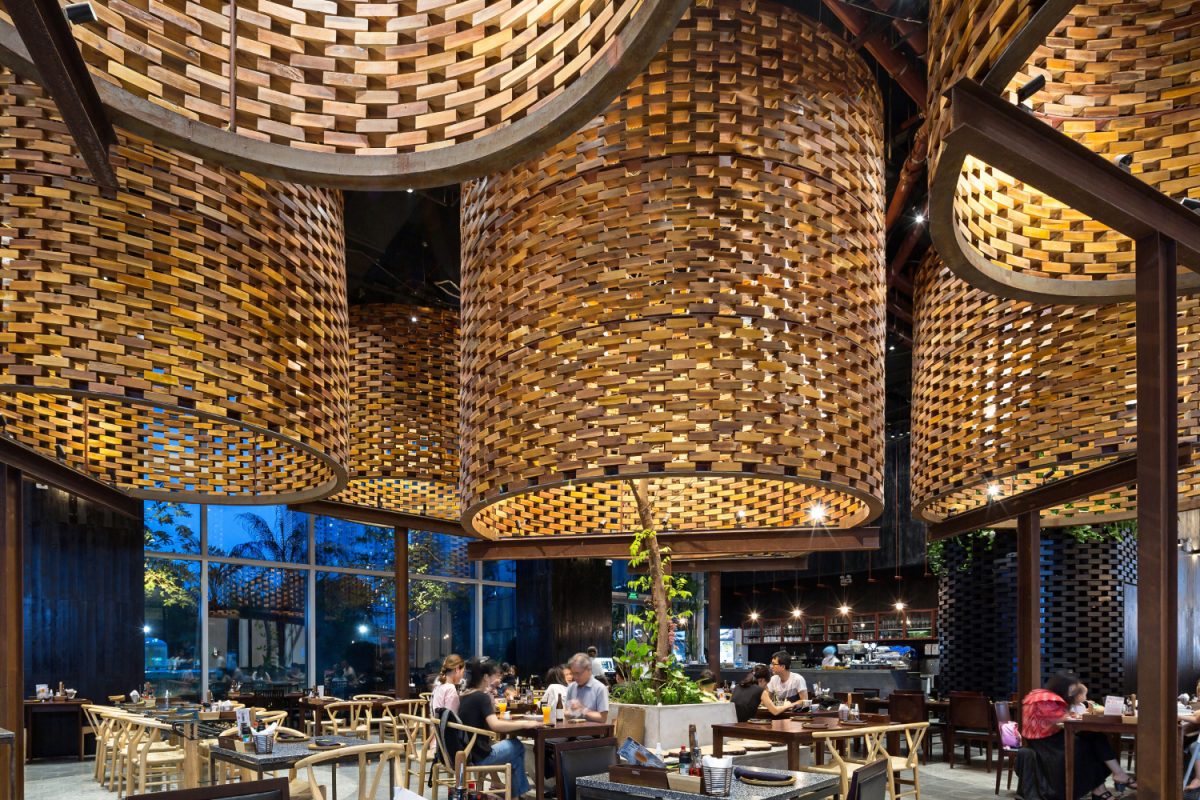
This huge expansion was possible thanks to the establishment of their own farm in Dalat and the introduction of a good number of packaged items, making their burrata and string cheese available in almost every convenience store in Saigon.
The company is committed to a zero-waste policy, as it upcycles 3 tons of plastic waste to make furniture for its restaurants and creates bill holders out of leather waste. In 2022, private equity firm Mekong Capital invested US$10 million in Pizza 4P through 4P’s Holdings Pte. Ltd., which runs the pizza business company.
Read More: Food and Beverage Industry in Vietnam: Market Overview and Investment Opportunities
2. Kamereo – Farm-to-Restaurant Provider
When it comes to food and beverage companies in Vietnam, one can’t simply ignore the farm-to-restaurant food service provider Kamereo, which was the first Vietnamese B2B food supplier to use technology to speed up daily supplies. The company launched in Saigon in 2019 but by 2021 it had raised VND 4.6 million to enhance its warehousing facilities and expand business to Hanoi.
The Ho Chi Minh City-based company achieved success by streamlining sourcing and purchasing across the chain of restaurants in the city using a B2B platform, thereby reducing costs. The Kamereo B2B platform connects farmers to consumers, speeding up the lengthy and tiresome delivery process of fruit and vegetables to kitchens and thus reducing the waste problem in the FMCG food and beverage industry.
As of July 2021, Kamereo grew by 15% every month for 12 months despite the COVID-19 pandemic restrictions. The company attributes its success to the over 10% growth rate of the Food and Beverage industry in Vietnam, as most players in this segment stressed sustainability and ethically sourced goods during the pandemic.
3. Star Kombucha
Star Kombucha is another company to look out for in the Food and Beverage industry. Launched in the 90s by US investors, this was the first professional sky-rider company in Vietnam. The fermented beverage seller promoted the healthy living movement in Vietnam with their “Healthy on the inside, Beautiful on the outside” motto.

The beverage company achieved success by targeting the 30-44 age group of women, luring them to a healthy lifestyle with their fermented beverages called Kombucha. The founder of the company, Paul Nguyen, introduced the Kombucha concept to Vietnam, cashing in on the consumer curiosity of trying various healthy beverage options available in the market.
In 2004, Star Kombucha modernized its recruitment process through a digital job search tool called Vietnamese Online Network (VON) which gave rise to the first domestic search engines (YuMe and timnhanh.com.vn.) of the country in the late 2000s. In 2013 the two websites were merged with CareerBuilder to launch the largest job search engine in the country, CareerBuilder Vietnam. Nguyen returned to the Goody Group (Star Kombucha belongs to this group) in 2019 which is seen as his dedication to the development of the Vietnamese community.
4. Marou – The Best Chocolate You Never Heard of
The FMCG Food and Beverage Industry in Vietnam also showcases the success of the two French investors who started selling chocolate bars wrapped in luminous colors to 32 nations after experimenting with cocoa pods in the Vietnamese countryside. Marou, founded in 2011, introduced the world to chocolate made of Vietnamese cacao.
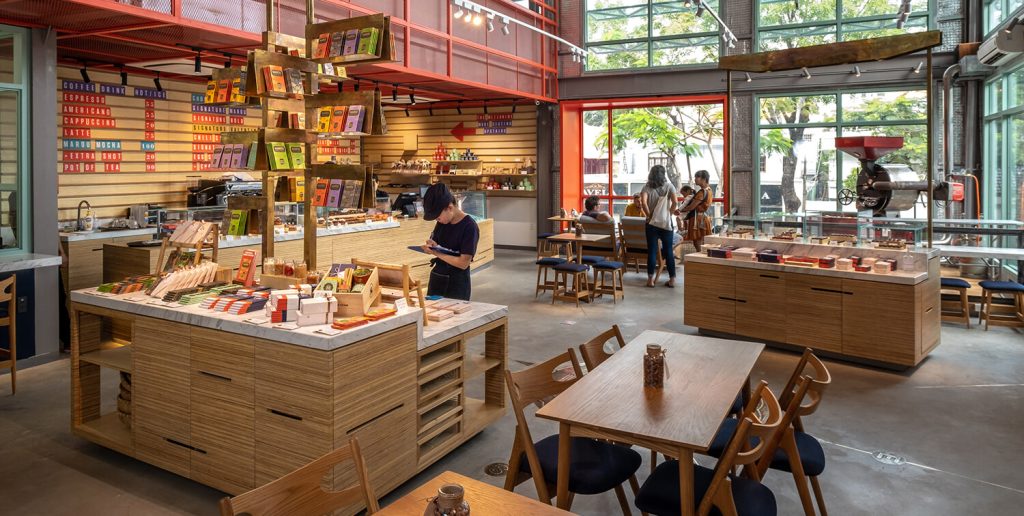
The company started as a manufacturing unit in Saigon (Ho Chi Minh City) and achieved overseas success because of its carefully sourced cacao chocolate beans and making chocolate bars with unusual aromas like tobacco or licorice. The chocolate manufacturer has turned into an overseas chocolatier brand, Maison Marou, where customers can hold business meetings over mocha or watch an industrial-grade roaster swivel trinitario beans in action.
Marou has captured the market from Shanghai to Singapore in a decade, which resulted in getting new investments from Mekong Capital in March 2021 to scale up and capture Vietnamese consumers.
“Vietnamese like chocolate, but they really see it as a flavoring, like on a cake or a Choco Pie,” co-founder Vincent Mourou said in an interview at a Maison Marou cafe.
5. Foody.vn – The Ultimate Foody App
The 2012 established food delivery startup Foody.vn has disrupted the Food and Beverage industry in Vietnam with its restaurant reservations, coupons, and order delivery services. The platform, which hosts 9288,000 monthly visitors, also provides restaurant listings and food recommendations, which has made it the most successful start-up in the country.
The startup launched the NOW.vn food delivery service app in 2016 along with the website of the same name. The app has received more than 40,000 delivery orders every day since 2018 which generates 70% of the market share, making it the first choice amongst local consumers in Ho Chi Minh City, ahead of Lozi, Vietnammm, GrabFood, Lala, Chonmon.vn, and Eat.vn.
As of 2021, the food delivery platform ranked 6130 amongst global websites, helping it bag seed funding of VND 64 million from Southeast Asia’s leading internet company, Sea Ltd. The investment makes up 82% of the public shares of the company.
6. Lecka – Healthy Organic Snacks
Among the food and beverage companies in Vietnam, the healthy snack maker Lecka finds a special mention as the brand gets the support of the sports community of the country. The company was started by Markus Gnirck in 2021 out of his personal interest in combining nutrition and sports.
It’s about time to change the snack industry. Too much artificial and refined sugar is used in all kinds of foods, especially snacks. We are here to change that. We put the health of the customers first and provide healthy and functional products that have a purpose.
MARKUS GNIRCK
Part of #teamlecka
Gnirck hit upon the idea of energy bars after witnessing marathons in Vietnam. It seemed a feasible solution, as the number of marathons in Vietnam has increased from two a year in 2019 to one every weekend in 2023.
The company has gained success because of its commitment to providing nutritious foods to people trying to live a healthy and sustainable life, especially for sports people. The Lecka snack bars are built with local and natural ingredients and sold in plastic-free packaging. In 2022, the company started exporting to other Southeast Asian countries like the Philippines, Singapore, and Hong Kong and expanded to the European market in 2023. Their focus is on the “farm-to-snack” concept in their products.
7. Orlar – Revolutionary Organic Produce
The FMCG food and beverage industry in Vietnam got first-hand experience in sustainable farming with Orlar’s beanbag-happy microbe pods, which grow affordable and contamination-free organic produce. This unique vertical farming solution has transformed landscapes by growing crops in stacked layers using soil-less techniques.
Orlar also ensured that Vietnam’s biodiversity was protected by promoting the judicious use of natural resources and enhancing the well-being of people.
Hugo and Amanda Comelissen started this business in 2017 after witnessing US companies like AppHarvest missing targets in alternative farming solutions like hydroponics. Through this vertical farming technique, Orlar could grow fruits and vegetables for restaurants and supermarkets in Vietnam. They also showcased their innovative sustainable farming idea at the Glasgow COP event in 2021.
8. Pasteur Street Brewing Co.
The Saigon-based Pasteur Brewing Company sells craft beer made from locally produced, fresh Vietnamese ingredients. This 2014 establishment is a leader in the craft beer industry in Vietnam, which is showcased by the 300 or more outlets it runs locally and internationally.
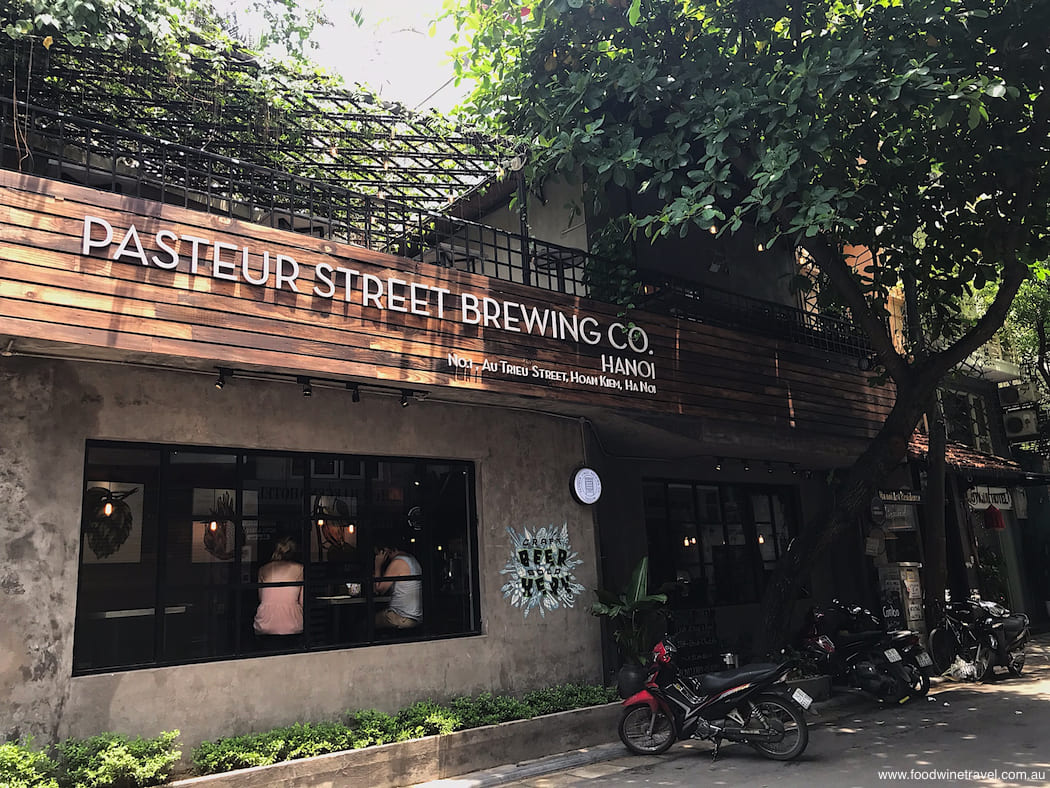
The company won several awards in APAC craft beer competitions, like its Cyclo Stout product, which won the first World Beer World Cup Award in its first year of operation. This led to the decision to make the brand available across all bars and restaurants in Vietnam.
However, distributing the beer was a major challenge as they needed to maintain the cold temperatures during transportation and storage. The company overcame the obstacles by partnering with Pizza 4Ps, Biacraft, The Boathouse, and Quan Ut Ut to make their beers available in these restaurant chains. The PSBC team at Pizza 4P’s helped the brewery make the push.
Investing in Vietnam’s Food and Beverage Industry? – Key Trends for Startups
The above businesses showcase the lucrative nature of the Food and Beverage industry for foreign investors looking to set up a company in Vietnam. However, the market has changed considerably due to changes in consumer behavior patterns since the COVID-19 pandemic.
Read More: Trends for Vietnam’s Food & Beverage Investors in 2024
Hence, food and beverage companies should take notice of the following trends in the FMCG sector of the country:
Changing Dynamics of Online Orders
Like all other F&B markets across the world, Vietnam is gripped by the online ordering phenomenon. Despite the issue of a 20-25% high commission cost per order, restaurants rely on online food ordering platforms. While many have started developing their apps to counter the diminishing profits due to the discount race, some are taking an 80-20 balanced approach of taking online orders through apps (80%) and self-operated hotlines (20%). In 2024, this ratio will decline to 70-30 or 60-40 levels.
Embracing Digitization
The Food and Beverage industry in Vietnam is witnessing an era of digital transformation as the government pushes for it. This resulted in a significant increase in digitization in restaurants in 2022 and 2023 which isn’t restricted to sales management software but also involves HR management, purchase value management, and customer care. Most food businesses are making managerial decisions using real-time data and reports.
Expansion of Big Brands
In 2022 – 2023, big brands dominated the market share with their accumulated capital as investors laid low and delayed opening new businesses to understand the post-COVID situation. However, in the last quarter of 2022 new restaurants, cafes, and other F&B businesses started opening as more people dined out after the pandemic. This has further led big chains to expand their businesses.
Stress on Hygiene and Vegetarian Food
Continuing with the pandemic effect of eating healthy food, consumers are expected to visit places with enhanced food safety and hygiene. The use of technology for processing orders, packaging, and persevering products is also a key trend to look out for. Additionally, the preference for plant-based products because of their healthier nature than animal products is likely to continue. In 2021, the plant-based meat market was worth US$5.02 billion, with a forecasted growth rate of 20.6%. However, in 2024, the Vietnamese people will balance the healthy food trend with their traditional preference for hotpot, grilled food, fast food, and rice.
Dying Trend of Cloud Kitchen
As the market has recovered from the pandemic situation, the cloud kitchen trend that gathered momentum is slowly phasing out as the owners are unable to attract big brands to maintain profits. In the next few years, a new and optimized version of the cloud kitchen model is likely to emerge.
How Can InCorp Vietnam Help?
InCorp Vietnam can guide you through all the necessary steps of setting up food and beverage companies in Vietnam, including product registration and restaurant establishment. Our team of skilled and certified legal experts and consultants will make the experience easy and hassle-free as we negotiate the regulatory requirements for you.
Get in touch with one of our legal experts by booking a free consultation.

clients worldwide

professional staff

incorporated entities in 10 years

compliance transactions yearly
Learn the Right Setup for Business
Expansion in the Vietnam
Frequently Asked Questions
Does F&B stand for food and beverage?
- Yes, F&B stands for "Food and Beverage." It is a common abbreviation used globally in the hospitality, restaurant, and service industries to refer to businesses or departments involved in preparing, managing, and serving food and drinks.
What are examples of food and beverages?
- Examples of food include fruits, vegetables, meat, rice, noodles, and dairy products. Examples of beverages include water, tea, coffee, soft drinks, juices, and alcoholic drinks such as beer and wine.
What is this food and beverage?
- "Food and beverage" refers to the industry that prepares, packages, serves, and sells food and drinks to consumers. This includes restaurants, cafes, catering services, bars, and food production companies. In a business context, it encompasses both the retail and service sectors involved in supplying meals and refreshments.
